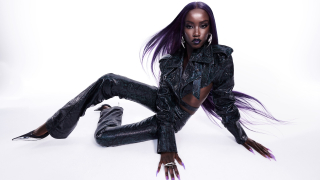As a child, I was largely shielded from many of the harsh realities of race in America until I was old enough to better understand their impact on my life and identity. The majority of my friends were Black and I maintained an altruistic view of the world that was untainted by any notions of limitations based on color well into early adolescence. That is not to say the implications of race were not around me. My father battled racism daily in the corporate world while my mother wrestled with crafting a plan that would help lead me as a Black child to success. Despite their keen awareness of what lay ahead, they took great care not to expose me to what the full meaning of race was until I was truly ready.
My earliest memories of when I became race conscious are a blur. I can remember being unsure how to process some experiences as one of few Black students at an exclusive all-White prep school. Experiences that I now know were absolutely influenced by my novelty to them as a Black boy but, at the time, were coded just well enough to pass under my radar. Fast forward, and I have certainly learned how to sense the impact that racial dynamics have on different aspects of my life, as it touches nearly everything I do–and, how I do it–almost daily.
If there is one particular theme I can identify with respect to how race manifests itself in my present day identity, it is the perseverance factor. It is no secret that Black men have historically been an oft-maligned, grossly misunderstood, and even dehumanized bunch. This is as much the case in 2014 as it was 100 years ago. Despite this reality of our misperception, we remain among the most confident and forward-moving groups that can be found anywhere. That strength, when properly applied, is a key ingredient in how Black men making the difficult seem effortless and the impossible within reach. We are the perennial underdog but still figure out a way to win. The perseverance factor is what sets us apart and is what I love most about being a Black man. The curse there is it will constantly be tested. The blessing is that the more it is tested, the stronger we become.
It has been said that the mark of a champion is not the few times one is knocked down, but rather, the number of times that one can again rise to their feet. By that measure, Black men are a group of unrivaled champions. Regardless of the industry, the level of education, fame, wealth, the presence (or absence) of any of the other social trappings that are often markers of success, to be a Black man will invariably mean to be knocked down. Yet, we repeatedly get up as the champions we are. Not only do we get right back up, but we do so with a swagger and a style that perplexes some and draws ire and envy from others. We keep going and do so in a way that can make some wonder whether many among us are really invincible. If our group has a gift it is the near superhuman ability to laugh in the face of adversity, meet it head on, and look cool while doing it. Don't believe me? Have you ever seen President Obama sweat under pressure?
There are some for whom notions of race remain limiting social constructs. We know them…the "I don’t see color" types. They equate "Blackness" to a prison of their own design, largely due to the associations others have created and which they have foolishly accepted. Some of this, I believe, is about making others around them feel more comfortable with who they are. In opting to mute race they avoid others' discomfort in wrestling with the issues that come along with race in America. This approach is simply not palatable for me. I disagree with them about what I allow race to mean for my identity. Where they point to the constraints of hitching so much of their identity to their race, I choose to see it as empowering–even in the face of the unsolicited challenges that accompany it–and opt to embrace it more deeply.
The very first thing people see when they see me is a Black man. I not only accept this reality, I embrace it. To deny or downplay my color is to not see me in my entirety and I am simply too bold and unapologetic to be invisible. As for making things more comfortable for others, I didn’t make race the issue therefore I see no reason to concern myself with making it easier for those who did to reconcile a litany of resulting problems that I did not create.
In hindsight, I now process what my parents did years ago much like stories in comic books where the guardians of a young child with superpowers carefully monitors when and how to introduce a gifted youth to a life their parents already know will be different, challenging, and adventurous. As I have grown in self-awareness, so have my super powers as a Black man. Powers that have made me resilient beyond compare, determined, and resolute. In a world that can often tell my brothers and me "No" at nearly every turn, I press forward, head bloodied but unbowed, with a dignity and pride inherited from generations of strong Black ancestors unable to so openly display their own superpowers. It is because of that legacy that I am able to press forward. It is because of them that I remain driven to succeed at everything I set out to do.
I am a Black man. And, I can do anything.
Charles F. Coleman Jr. is a former Kings County (Brooklyn) NY prosecutor and a federal civil rights attorney. Follow him on Twitter @CFColemanJr












